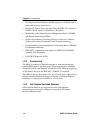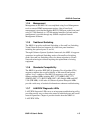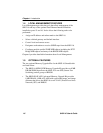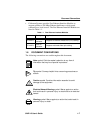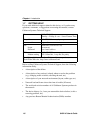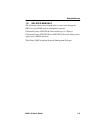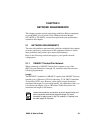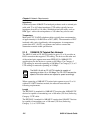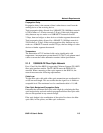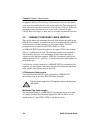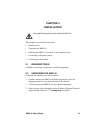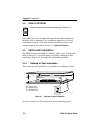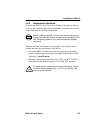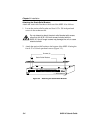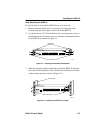
Chapter 2: Network Requirements
2-2 8H02-16 User’s Guide
Impedance
Cabletron Systems 10BASE-T twisted pair products work on twisted pair
cable with 75 to 165 ohms impedance. UTP cables typically have an
impedance from 85 to 110 ohms. Shielded twisted pair cables, such as
IBM Type 1 cable with an impedance of 150 ohms may also be used.
Temperature
Multi-pair PVC 24 AWG telephone cables typically have an attenuation
of approximately 8–10 dB/100 m at 20°C (68°F). The attenuation of PVC
insulated cable varies significantly with temperature. At temperatures
greater than 40°C (104°F), use plenum-rated cable to ensure that
attenuation remains within specification.
2.1.2 100BASE-TX Twisted Pair Network
The 8H02-16 with an FE-100TX installed in ports 15 or 16 provides an
RJ45 connection that supports UTP cabling. The device at the other end
of the twisted pair segment must meet IEEE 802.3u 100BASE-TX
specifications for the devices to operate at 100 Mbps. Use Category 5
UTP cabling for networks operating at 100 Mbps. Use Category 3, 4, or 5
UTP cabling for networks operating at 10 Mbps.
When connecting a 100BASE-TX twisted pair segment to port 15 or 16
with an FE-100TX interface module, the network must meet the
following requirements:
Length
The IEEE 802.3u standard for 100BASE-TX requires that 100BASE-TX
devices be capable of transmitting over a 100 meter (328 foot) link using
Category 5 UTP cable.
The IEEE 802.3 standard for 10BASE-T requires that 10BASE-T devices
be capable of transmitting over a 100 meter (328 foot) link using
Category 3, 4, or 5 UTP cable.
NOTE
The 8H02-16 with an FE-100TX installed is capable of
operating at either 10 or 100 Mbps. The FE-100TX senses the
speed of the other device and adjusts its speed accordingly.



